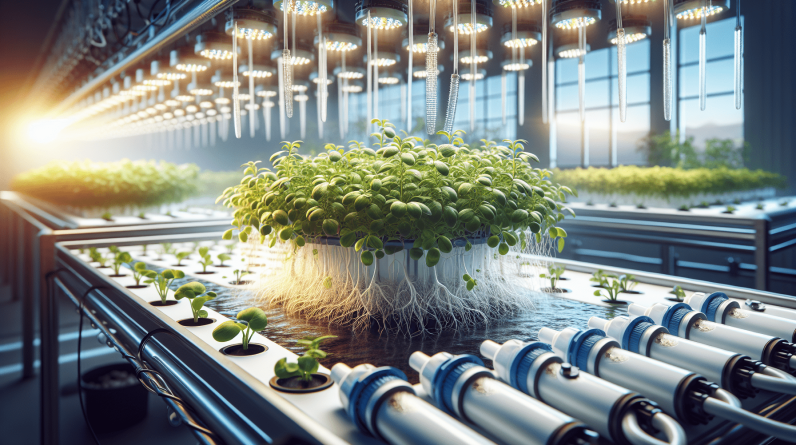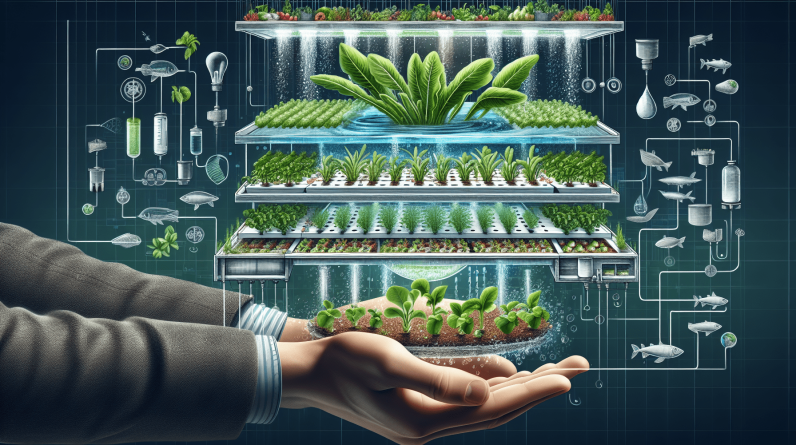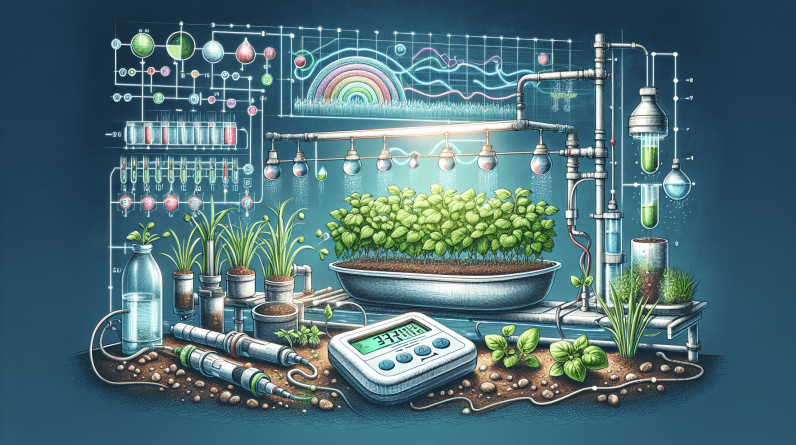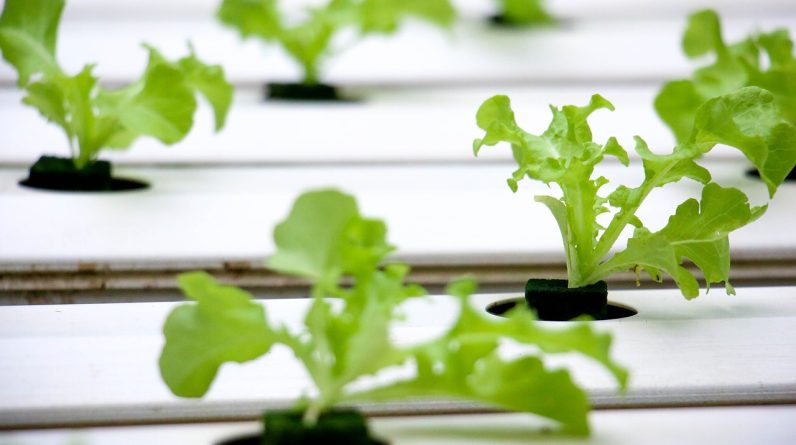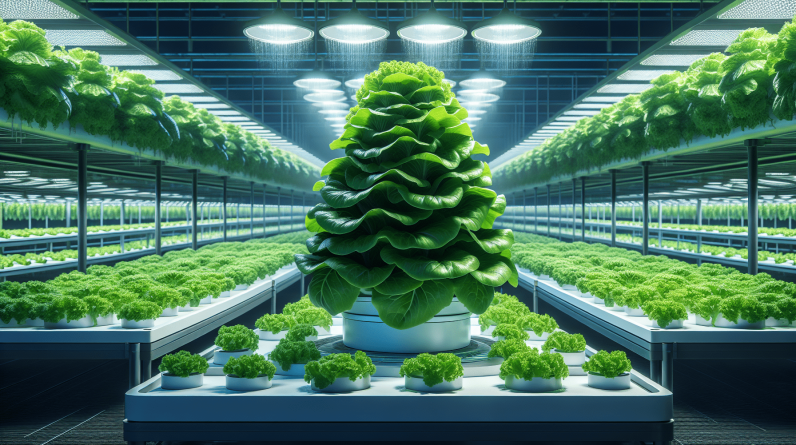
Discover the wonderful world of organic hydroponic gardening and all the benefits it has to offer. With hydroponic growing systems, you can enjoy faster growth and higher yields without the need for soil. By delivering nutrients directly to the roots, you can conserve water and grow plants year-round, no matter the weather. Say goodbye to soil-borne diseases and pests, and hello to healthier, chemical-free plants. Embrace sustainable and efficient gardening with hydroponics today! Hey there! Have you ever considered trying your hand at organic hydroponic gardening? If not, you’re in for a treat! It’s a fantastic way to grow fresh, healthy produce right in the comfort of your own home. In this article, we’ll explore the numerous benefits of organic hydroponic gardening and how you can get started. Let’s dive in!
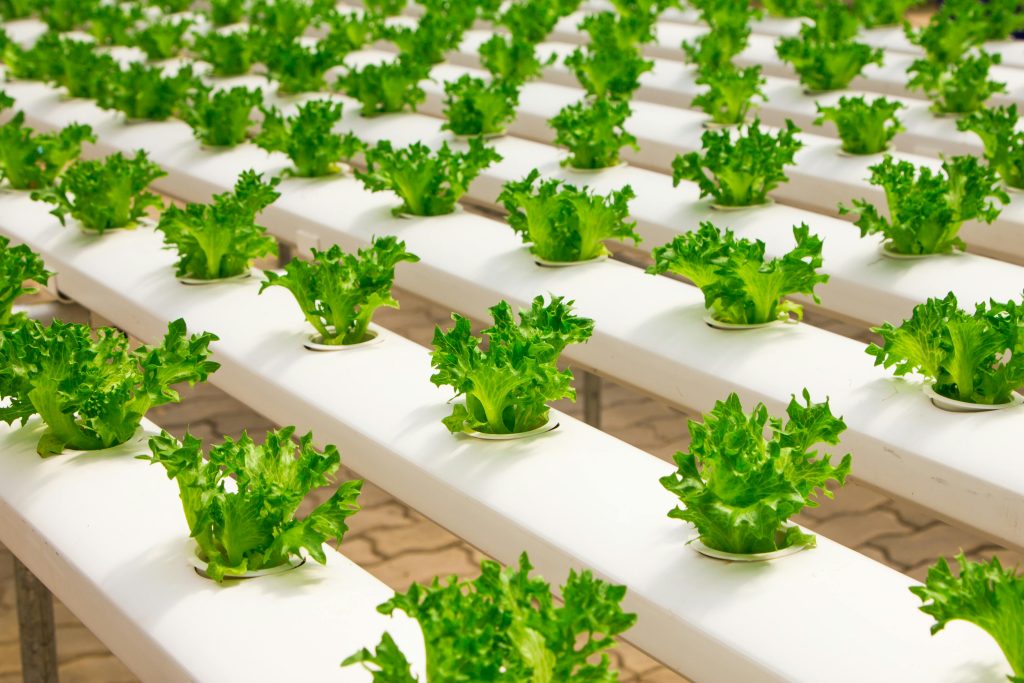
Why Choose Organic Hydroponic Gardening?
Organic hydroponic gardening is a sustainable and efficient method of growing plants without the use of soil. By providing nutrients directly to the plant roots through a nutrient-rich solution, hydroponic systems allow for faster growth and increased yields. Plus, with up to 90% less water consumption compared to traditional soil gardening, it’s an environmentally friendly choice.
Organic hydroponic gardening is perfect for those looking to grow their own fresh produce, all while minimizing their carbon footprint. Sounds like a win-win, right?
The Health Benefits of Organic Produce
When you grow your own organic produce using hydroponic methods, you can rest assured that your fruits and veggies are free from harmful pesticides and chemicals. Organic crops are rich in essential nutrients and antioxidants, which can help boost your immune system and improve overall health. By consuming organic produce from your hydroponic garden, you’re investing in your well-being.
Who wouldn’t want to enjoy the health benefits of fresh, organic produce that you’ve grown yourself?
Getting Started with Organic Hydroponic Gardening
Ready to start your own organic hydroponic garden? Let’s walk through the steps to get you set up and growing your own delicious fruits and veggies.
1. Choose the Right Hydroponic System for You
There are several types of hydroponic systems available, each with its own set of advantages and requirements. Consider factors such as space, budget, and the types of plants you want to grow when selecting a system. Some popular options include nutrient film technique (NFT), deep water culture (DWC), and drip systems.
Don’t worry, there’s a hydroponic system out there that’s perfect for you, no matter your experience level or gardening goals.
2. Select Your Organic Nutrients
Organic hydroponic gardening relies on nutrient solutions to provide essential elements to your plants. Choose organic nutrients that are specifically formulated for hydroponic systems to ensure optimal growth and health. Look for products that are free from synthetic chemicals and are derived from natural sources such as seaweed, fish emulsion, or compost tea.
By nourishing your plants with organic nutrients, you’re supporting a healthy growth cycle and producing tastier, more nutritious crops.
3. Prepare Your Growing Area
Set up a dedicated space for your hydroponic garden with adequate lighting, ventilation, and temperature control. Make sure to sterilize your equipment and growing containers to prevent the spread of pests and diseases. Consider using a grow tent or grow room to create the optimal environment for your plants to thrive.
Creating the right growing conditions is key to a successful organic hydroponic garden. With a little planning and preparation, you’ll be on your way to bountiful harvests in no time.
4. Monitor Water and Nutrient Levels
Maintain the proper pH and nutrient levels in your hydroponic system to ensure your plants receive the essential elements they need to grow. Keep an eye on water temperature, oxygen levels, and system cleanliness to prevent issues such as nutrient deficiencies or root rot. Invest in a quality pH and EC meter to easily monitor and adjust your nutrient solution as needed.
By staying on top of water and nutrient management, you’ll promote healthy plant growth and maximize your yields.
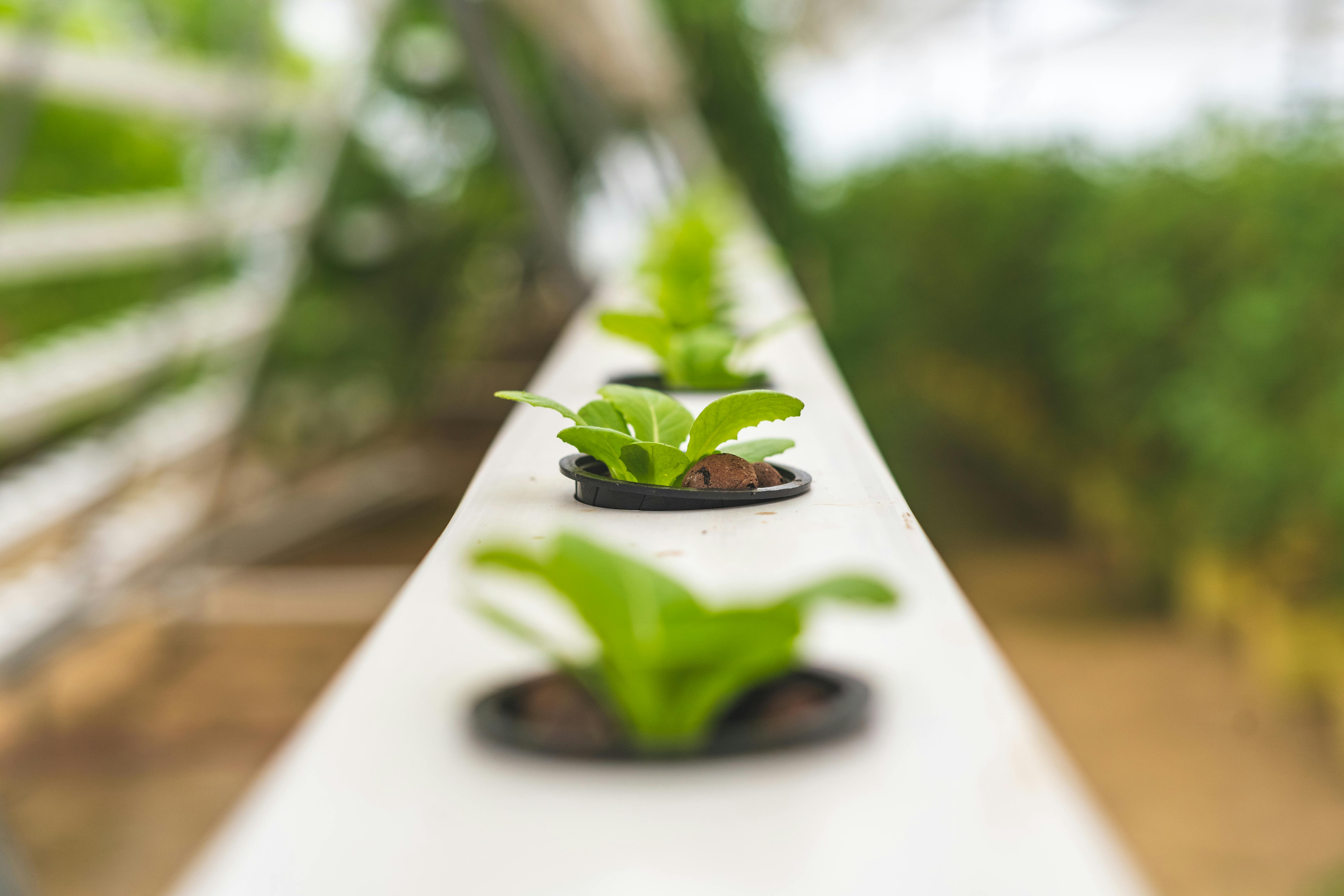
The Environmental Impact of Organic Hydroponic Gardening
Hydroponic systems offer several environmental benefits that make them a sustainable choice for modern gardening practices. Let’s explore how organic hydroponic gardening can help reduce your ecological footprint.
Water Conservation
One of the most significant advantages of hydroponic gardening is its water-saving capabilities. Traditional soil-based gardening can be water-intensive, with significant amounts lost due to evaporation and runoff. Hydroponic systems use recirculating water, allowing for up to 90% less water consumption than soil gardening. By conserving water, you’re helping to protect this precious resource and minimize waste.
Reducing water usage is not only good for the environment, but it can also help lower your water bills in the long run. That’s a win-win situation for you and the planet!
Elimination of Chemical Inputs
Organic hydroponic gardening eliminates the need for chemical pesticides and fertilizers, which can harm beneficial insects, contaminate soil and water sources, and harm human health. By using organic nutrients and pest control methods, you’re creating a natural and sustainable growing environment for your plants. Additionally, without the need for soil, there’s a reduced risk of soil-borne diseases and pests, leading to healthier crops with fewer chemical inputs.
Choosing organic hydroponic gardening is a proactive step towards reducing your exposure to harmful chemicals and supporting a healthier ecosystem.
Year-Round Cultivation
Hydroponic systems enable year-round cultivation, regardless of external weather conditions. With controlled environments such as indoor grow rooms or greenhouses, you can grow a variety of crops throughout the year, even in regions with harsh climates. This continuous production cycle ensures a fresh and steady supply of fruits, vegetables, and herbs, no matter the season.
Thanks to the flexibility of hydroponic systems, you can enjoy homegrown produce year-round and reduce your reliance on store-bought fruits and veggies.

Maximizing Yields with Organic Hydroponic Gardening
Organic hydroponic gardening offers several strategies for maximizing plant yields and achieving abundant harvests. By implementing these tips and techniques, you can optimize plant growth and produce a bountiful supply of fresh, nutritious crops.
Proper Lighting
Light is a critical factor in plant growth and development, especially in hydroponic systems where natural sunlight may be limited. Choose high-quality grow lights such as LEDs or T5 fluorescent bulbs to provide the appropriate spectrum and intensity for your plants. Position the lights at the correct distance and angle to ensure uniform coverage and prevent light burn or shadowing.
By providing your plants with optimal lighting conditions, you’ll promote healthy photosynthesis and encourage robust growth throughout the growing cycle.
Nutrient Management
Maintaining the proper balance of nutrients is essential for healthy plant growth and high yields in organic hydroponic gardening. Regularly monitor pH levels, EC levels, and nutrient concentrations in your solution to prevent deficiencies or excesses that can impact plant health. Adjust your nutrient solution as needed to meet the changing requirements of your plants during different growth stages.
By fine-tuning your nutrient management practices, you can ensure that your plants receive the essential elements they need for vigorous growth and abundant yields.
Pruning and Training
Pruning and training your plants can help maximize yields by directing growth energy towards fruit production and improving air circulation within the canopy. Remove dead or yellowing leaves, side shoots, and damaged stems to promote better light penetration and reduce the risk of disease. Use trellises, stakes, or cages to support heavy fruiting plants and encourage upward growth.
Proper pruning and training techniques can help increase fruit quality and quantity, resulting in a more productive and visually appealing garden.
Pest and Disease Prevention
Preventing pests and diseases is crucial in organic hydroponic gardening to maintain healthy plant growth and high yields. Implement integrated pest management (IPM) strategies such as removing affected leaves, introducing beneficial insects, or using organic pest controls to manage pest populations. Regularly inspect your plants for signs of pests, diseases, or nutrient deficiencies to address issues promptly.
By staying proactive with pest and disease prevention, you can protect your crops and ensure a successful harvest without the need for harmful chemicals.
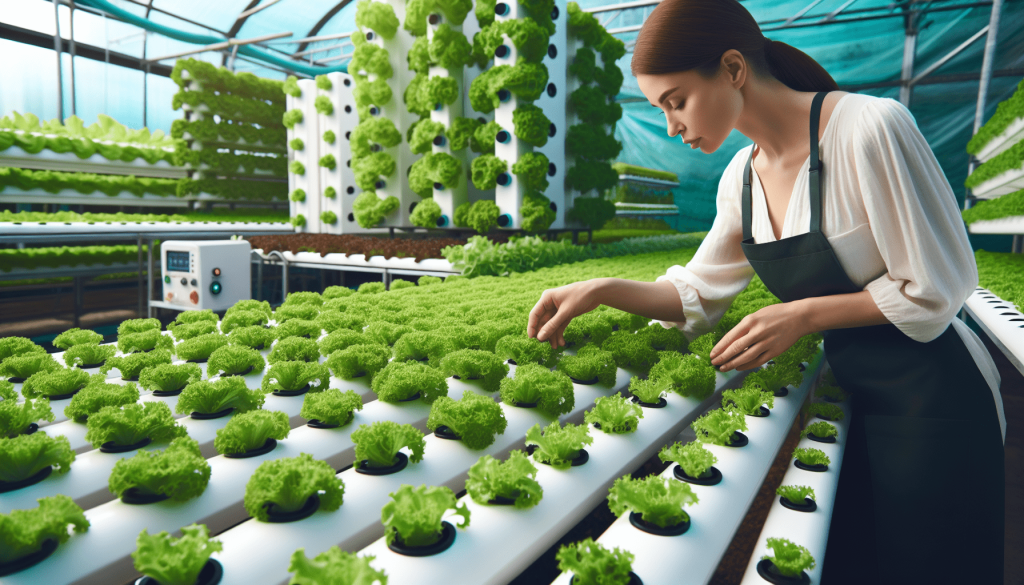
Conclusion
Organic hydroponic gardening offers a multitude of benefits for both the environment and your health. By adopting this innovative growing method, you can enjoy fresh, nutritious produce year-round, all while conserving water, reducing chemical inputs, and maximizing plant yields. Whether you’re a seasoned gardener or just starting out, organic hydroponic gardening provides a sustainable and rewarding way to grow your own food at home.
So why not give it a try? Start your organic hydroponic garden today and reap the many rewards that come with cultivating your own sustainable and healthy produce. Happy growing!





